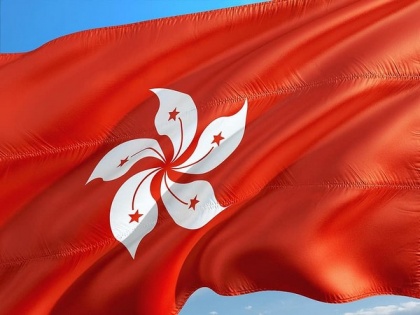Hong Kong govt calls for tighter supervision of city's public broadcaster
By ANI | Published: February 24, 2021 05:33 AM2021-02-24T05:33:47+5:302021-02-25T00:06:06+5:30
The Hong Kong government has called for tighter supervision of city's public broadcaster by government-appointed advisers, a move seen by pro-democracy activists as an attempt to restrict freedom of the press.

Hong Kong govt calls for tighter supervision of city's public broadcaster
The Hong Kong government has called for tighter supervision of city's public broadcaster by government-appointed advisers, a move seen by pro-democracy activists as an attempt to restrict freedom of the press.
According to The New York Times, the Hong Kong government accused the public broadcaster Radio Television Hong Kong (RTHK) in its 157-page report of often reporting critically on officials and lacking transparency and objectivity.
The report came hours after the government announced that the head of the public broadcaster would leave his post six months before his tenure ended. However, his replacement is a civil servant from outside the broadcasting service with no journalism experience.
For supporters of Hong Kong's pro-democracy movement, RTHK's troubles signalled the fate of independent journalism under an intensifying crackdown on dissent. Often compared to the BBC, the broadcaster is government-funded but is promised editorial independence in its charter, reported The New York Times.
Last week, RTHK announced that it would no longer relay the British Broadcasting Company (BBC) programmes, shortly after China banned the British public broadcaster "within Chinese territory".
During and after the huge anti-government protests of 2019, the broadcaster investigated police inaction during a mob attack on pro-democracy protesters, and its reporters grilled top government officials.
Those programs made RTHK a favourite target for pro-government figures, especially over the past year as Beijing has enforced a wide-ranging security law to stifle protests and intimidate critics, reported The New York Times.
However, last year Hong Kong's communications authority ordered the broadcaster to discipline employees on a political satire program after ruling that a skit had insulted the police force. (The program itself was later suspended.)
In August, RTHK removed a podcast that featured an interview with a well-known activist after the authorities warned that it could violate the security law.
Three months later, the police arrested Choy Yuk-ling, an award-winning RTHK producer who had made the documentary about the mob attack, reported The New York Times.
One prominent establishment lawmaker has suggested that RTHK be folded into the government's public relations department. Pro-Beijing figures have filed thousands of complaints against the station and staged protests outside its offices.
Carrie Lam, Hong Kong's chief executive, said this month that the number of substantiated complaints against RTHK in recent years was "unacceptable."
"My position is that RTHK greatly needs to be improved," she said. "There are many things in Hong Kong that need to be set right."
The government's report was the product of a seven-month review, which officials announced last spring in response to "wide public concern" about the broadcaster's performance. The review was led by a senior civil servant, Jessie Ting Yip Yin-mei, who Lam said was known as her "favorite."
The report called RTHK's editorial processes "seriously inadequate" and said that there was no clear mechsm to ensure "proper handling of sensitive/controversial issues." It also accused RTHK of offering "no assurance" that public complaints were investigated impartially.
It criticised the broadcaster for not actively seeking advice from its government-appointed Board of Advisers. The board is led by figures with close ties to Beijing, reported The New York Times.
The report said that RTHK should keep written records of how coverage decisions are made, cultivate a stronger relationship with the advisory board and ensure that the editor-in-chief plays a more active role in shaping coverage.
Some wonder how that more active role will play out under the newly announced head, Patrick Li. While the departing editor in chief, Leung Ka-wing, had worked as a reporter and editor at multiple news orgzations, Li, currently the deputy secretary for home affairs, does not have a journalistic background.
Moreover, the government did not explain Leung's early departure but said that his contract had been "resolved early by mutual consent," The New York Times reported.
( With inputs from ANI )
Disclaimer: This post has been auto-published from an agency feed without any modifications to the text and has not been reviewed by an editor
Open in app